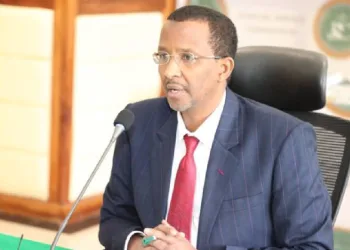The government is facing a significant crisis in the pension industry, with potential repercussions for financial markets. The ongoing practice of extending state employees’ contracts beyond the designated retirement age is approaching a critical juncture, as nearly one-third of the government workforce is on the verge of retirement and subsequent pension payments.
In June 2023, the Pensions Department at the National Treasury announced plans to process 85,400 pension claims over the next three years, which will amount to an estimated Sh685 billion in pension benefits during that period. Rising pension liabilities, coupled with debt repayment costs, present a formidable challenge for President William Ruto’s administration over the next three years.
By the end of June 2024, approximately 30,155 workers are expected to retire, followed by 28,745 in 2025 and 26,500 in 2026, as estimated by the National Treasury. This will entail processing pensions worth Sh189 billion for the fiscal year ending June 2024, with an increase to Sh207 billion for the 2024-25 financial year.
Earlier in 2024, a cash crunch led to state entities failing to remit a total of Sh72.96 billion in pension and pay-as-you-earn (PAYE) deductions. The Retirement Benefits Authority (RBA) estimates that around 3.5 million people, or 25% of the workforce, are covered by retirement benefit schemes.
As of February 2024, documents from the Parliamentary Budget Office (PBO) indicated that unremitted pension dues stood at Sh47.6 billion, while PAYE debts were at Sh25.3 billion. This scenario points to general liquidity challenges in fulfilling expenditure commitments, compounded by poor corporate governance and a lack of oversight between State corporations and the National Treasury.
The situation is further complicated by the 2009 increase in the retirement age from 55 to 60, aimed at addressing a growing pension bill. However, the extension of retirement periods contradicts the Public Service Commission Act of 2017, which mandates that public officers retire upon reaching the established age.
Employees like William from the Postal Corporation express frustration over delayed retirements, stating, “In the next three years, I will be hitting 60. If I could get my money immediately and retire, why not?”
Similarly, Peter Ochieng, who has been seeking his pension at Bima House for years, feels frustrated by the lack of progress in processing his claims.
Despite the ongoing crisis, a new proposal aims to reduce the mandatory retirement age from 60 to 55 years to create employment opportunities for younger individuals. However, stakeholders in the pension sector caution that this could lead to shorter contribution periods and longer payout durations, resulting in reduced monthly benefits and financial strain on pension funds.
Additionally, amendments to the Pensions Act are being considered to include automatic cost-of-living adjustments for pensioners. This proposed bill seeks to base pension calculations on the most current salary for each job group, which could further increase government liabilities.
President Ruto has directed that public servants who have reached retirement age proceed to retire. Companies like Kingsland Court emphasize the need for the government to support retirement programs, advocating for both financial and mental preparation for retirees.
According to the Kenya National Bureau of Statistics, the government is projected to spend Sh76.9 billion on social safety net programs by the end of the 2024-25 fiscal year, reflecting a 16% increase from the previous year. This increase signifies a growing need for assistance, with an expected rise in households receiving support.
Kenya’s Pension Crisis: Challenges and Financial Implications
Subscribe to receive the latest news updates, exclusive stories, and insightful articles straight to your inbox. Stay ahead with credible news coverage from Kenya and around the world.

















